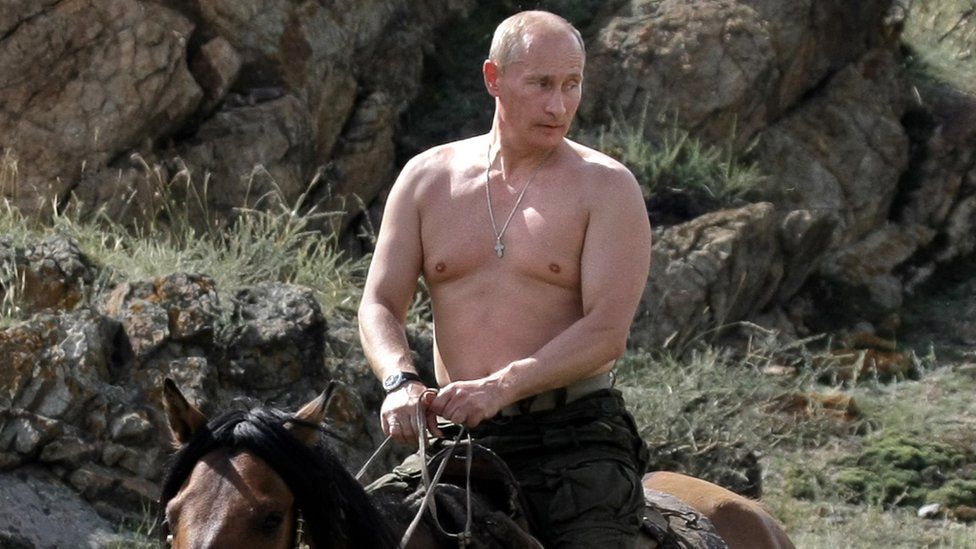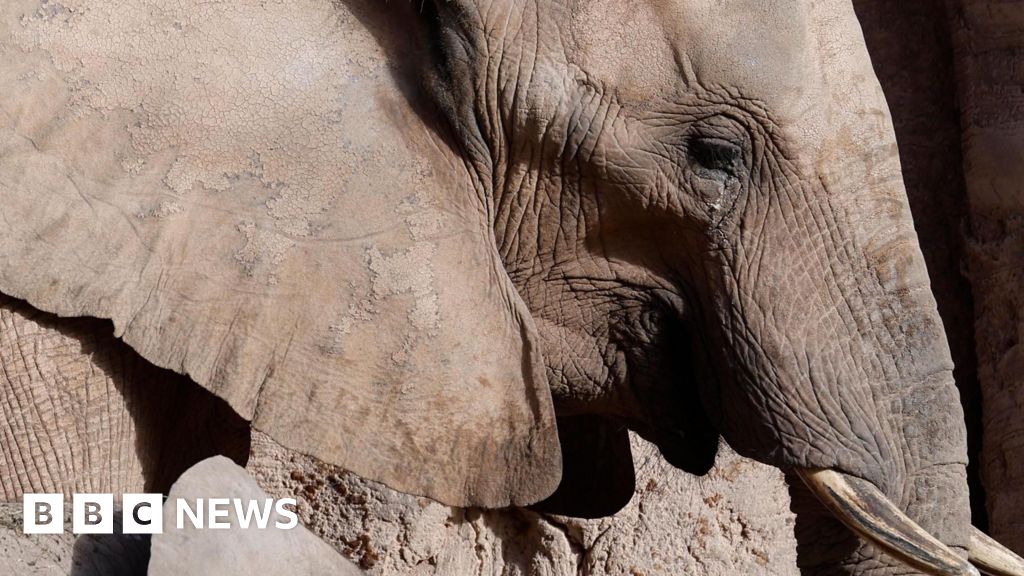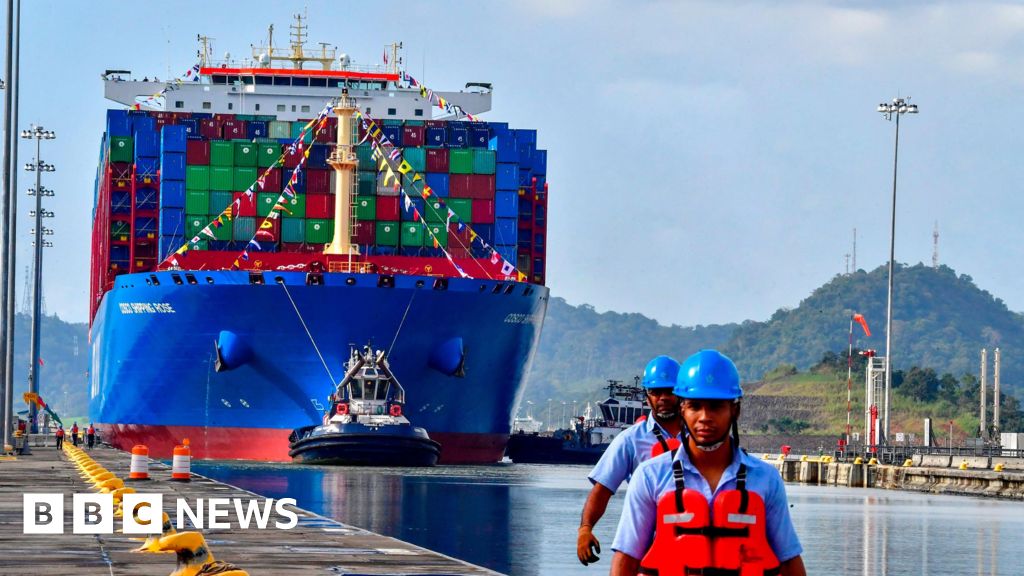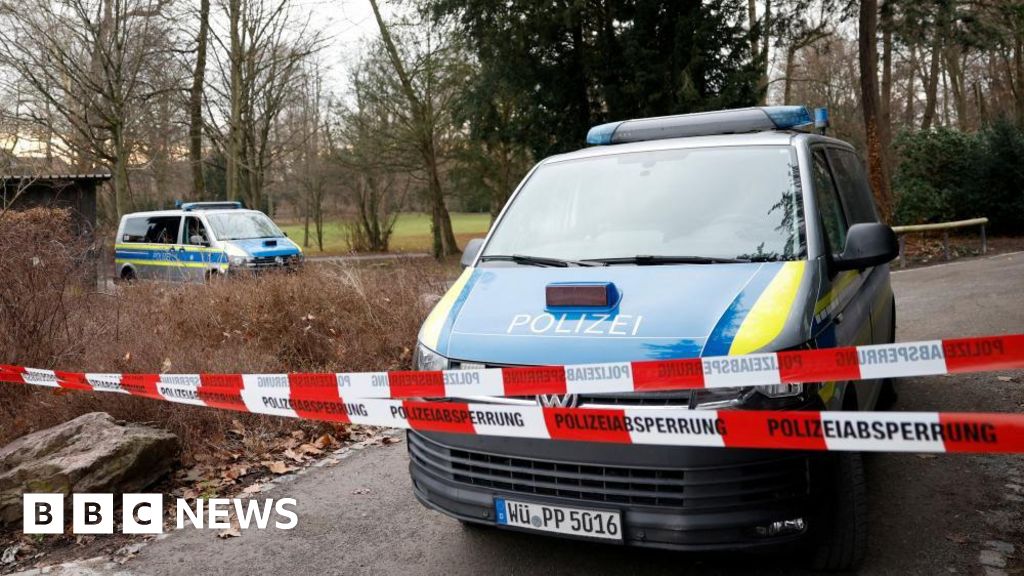ARTICLE AD BOX
 Image source, AFP
Image source, AFP
Vladimir Putin has cultivated a macho image, including by being photographed riding a horse topless in 2009.
Vladimir Putin has hit back at Western leaders who mocked his macho image this week, saying it would be "disgusting" to see them strip off.
It comes after leaders at the G7 summit poked fun at the Russian president's tendency to pose for topless photos.
But Mr Putin suggested his counterparts needed to cut out alcohol and do more sport.
He also rejected comments from the UK's Boris Johnson that he wouldn't have invaded Ukraine if he were a woman.
At a press conference, Mr Putin said this was "not correct" - arguing Margaret Thatcher had "decided to start hostilities" in the Falklands War.
Mr Putin has been pictured shirtless several times in Russian state media, including whilst riding a horse, carrying a hunting rifle, and going fishing.
The pictures have been widely interpreted as the Russian president seeking to project a sense of masculinity that appeals to many Russians.
At the G7 summit in Germany earlier this week, Mr Johnson took a swipe at him, joking the leaders should take their clothes off to "show that we're tougher than Putin".
The British prime minister also suggested the leaders "show them our pecs", whilst Canada's Justin Trudeau suggested "bare-chested horseback riding."
Watch: 'Show them our pecs' - G7 leaders mock Putin
Asked about the comments during a news conference in Turkmenistan, Mr Putin replied: "I don't know whether they wanted to strip down to the waist or below the waist, but I think that it would be a disgusting sight in any case."
Referencing the Russian poet Alexander Pushkin, he added: "You can be a smart person and think about the beauty of your nails."
He continued: "I certainly agree with this: everything in a person should be harmoniously developed, both soul and body.
"But in order for everything to be so harmonious, you need to give up alcohol abuse, other bad habits, work out, do sport".
"The colleagues you mentioned, I know all of them personally - we are not having the best period in our relations, this is understandable.
"But nevertheless, they are all leaders, which means they have character. And if they want, they will certainly achieve the desired progress.
"But you need to work on yourself. And the fact that they are talking about it is already good, I will praise them for this," he added.
When Mr Putin's comments were relayed to him at a Nato press conference on Thursday, Mr Johnson did not respond directly, but pointed to the way Western nations had unified in response to the invasion of Ukraine.
Image source, Getty Images
Image caption,The Russian president has been pictured shirtless whilst fishing in Siberia
Mr Putin was also asked about Mr Johnson's remarks this week that the Russian president would not have invaded Ukraine if he were female.
In an interview with German broadcaster ZDF, Mr Johnson said the "crazy, macho" invasion was a "perfect example of toxic masculinity" - and also called for "more women in positions of power".
Citing the 1982 conflict between the UK and Argentina over the Falkland islands, the Russian president said: "I just want to recall the events of recent history, when Margaret Thatcher decided to start military hostilities against Argentina for the Falkland Islands.
"So a woman decided to start hostilities. Where are those Falkland Islands and where is Britain? And this was dictated by nothing else than imperial ambitions, confirmation of their imperial status.
"Therefore, I think that this is not a very correct allusion to what is happening today, not from the current prime minister of Great Britain anyway."
The 10-week Falklands conflict began in April 1982, when troops from Argentina invaded the Falkland Islands, a British colony in the south Atlantic ocean.
Argentina said it had inherited the islands from Spain in the 1800s and wanted to reclaim them.
The British had ruled the islands for 150 years, and sent armed forces by sea to take the islands back. Argentina's troops surrendered on 14 June.

 2 years ago
25
2 years ago
25








 English (US) ·
English (US) ·